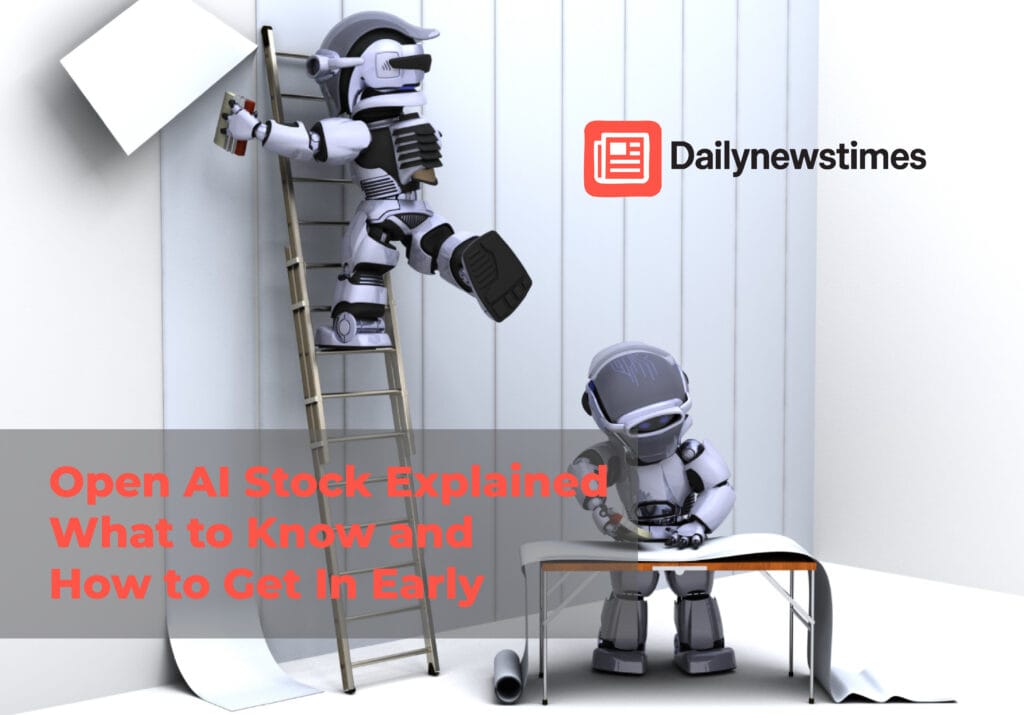So, you might’ve heard about Open AI stock and thought, “Wait—is it public already?” Well… not exactly. But the idea of OpenAI going public has been floatin around a lot lately. And there’s good reason for that. With it’s massive valuation, huge investments, and a new corporate structure—people are wondering when (or if) OpenAI will hit the stock markets.
Why Everyone’s Chattin About OpenAI’s IPO Potential
OpenAI recently raised $8.3 billion, pushing its valuation up to a staggering $300 billion. Companies like Microsoft, SoftBank, and others are already invested. This isn’t just another tech startup—it’s one of the most talked about AI companies on the planet right now.
Their CFO, Sarah Friar, recently hinted at a possible IPO at the Dublin Tech Summit. She said their new structure “opens the door” for a public listing—but didn’t say when. Still, it got folks talkin.
What’s Slowing It Down Then?
1. It’s Weird Hybrid Structure
OpenAI’s a mix of nonprofit and for-profit—confusin, yeah? The nonprofit owns the for-profit arm, and that means the mission comes first… not just profits. That’s great for ethics, but makes IPO planning trickier than other AI startups.
2. Microsoft’s In The Mix
Microsoft, their biggest backer, is still renegotiating licensing deals and equity. If you’re wonderin how that affects things—it’s huge. They kinda share rights to the models, and the outcome of those talks could decide if or when a IPO happens (Reuters).
3. Legal Hiccups from Delaware
Turns out, Delaware’s AG wants an independent valuation of OpenAI before they sign off anything. They even hired a bank for it. Sounds minor—but it could delay an IPO or impact it’s stock pricing.
Can Regular Folks Buy OpenAI Stock Now?
Sadly, not yet on NASDAQ or any exchange. But, if you’re an accredited investor, you can maybe get shares through Forge Global or EquityZen.
As of August 2025, Forge lists OpenAI shares at around $469.47 each, valuing the company at $324 billion. And they’ve dropped minimum investment to just $5,000. Still, that’s only for rich investors (unfortunatly)—not everyday traders.
Pros and Cons of Pre-IPO Investing
✅ Pros:
- Get in before public hype explodes
- Possibly lower price per share
- Could ride massive valuation growth
❌ Cons:
- No gurantees on liquidity
- Shares locked for who-knows how long
- Complex structure makes it risky
If you can’t invest directly, some people go for Microsoft stock, which has deep ties to OpenAI anyway.
Is OpenAI Really Worth $300 Billion?
This part’s kinda wild. In just a year, OpenAI’s value ballooned from $80B to over $300 billion. But some experts say this smells like the dot-com bubble. There’s big hopes on AGI (Artificial General Intelligence), but not all of it’s backed by profits yet.
Even MarketWatch warned investors to be cautious, sayin OpenAI’s worth more than 87% of the S&P 500—yep, really. That’s a lot to live up too.
OpenAI’s Real-World Numbers
The company’s estimated to bring in $12–13 billion annually in 2025 (Reuters), but it’s costs are sky-high. Server usage, research, staff, etc… they’re burning through cash faster than it comes in. This ain’t rare for AI companies, but it means investors are basically betting on long-term vision—not current profit.
Tips for Tracking OpenAI Stock (Even If You Can’t Buy Yet)
- Watch Forge for pricing updates
- Follow Reuters for IPO news and legal filings
- Consider Investing.com for insight on secondary market access
- Keep up with IPO trends via MarketWatch
FAQs – People Ask These Alot
Is OpenAI stock public yet?
Nope. Still private. Only accredited investors can buy via private market.
When will OpenAI IPO?
No exact date. Some guess 2026 or later, depending on internal decisions and legal stuff.
How can I invest if I ain’t accredited?
You can’t right now—unless you go through indirect exposure like buying Microsoft or AI ETFs.
What’s the risk level?
Pretty high. Between corporate complexity, legal oversight, and possible delays, it ain’t a sure win.
Final Thoughts
Open AI stock is one of those “not yet but maybe soon” situations. If you’re already into AI investing, you’ll definitely wanna keep an eye on it. But for now:
- Don’t fall for hype headlines
- Read the fine print on structure
- Only invest if you fully understand the risk
- Watch Microsoft and market trends as a proxy
It might not be public yet—but it’s definitely public interest.

